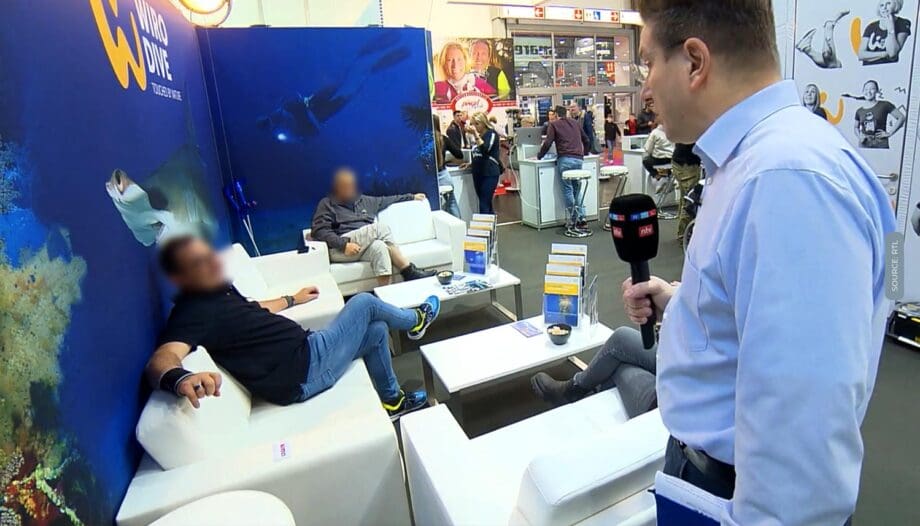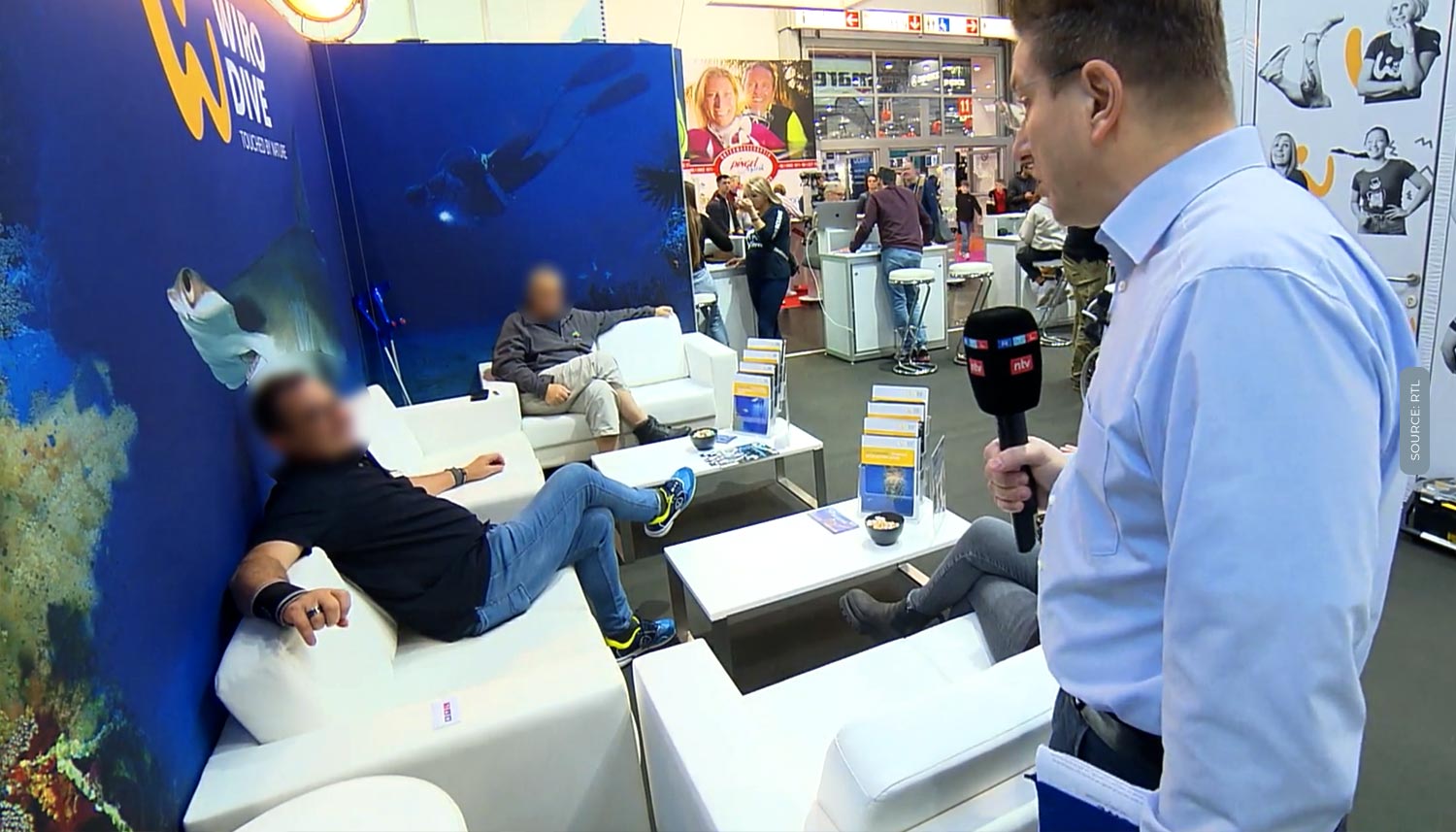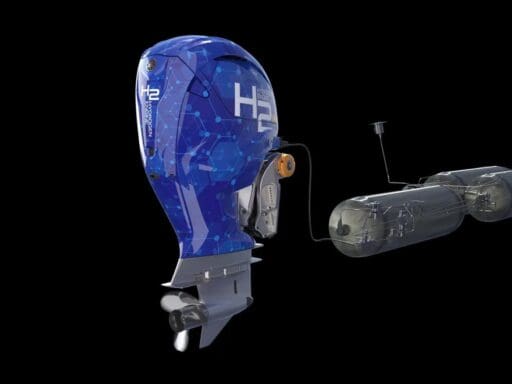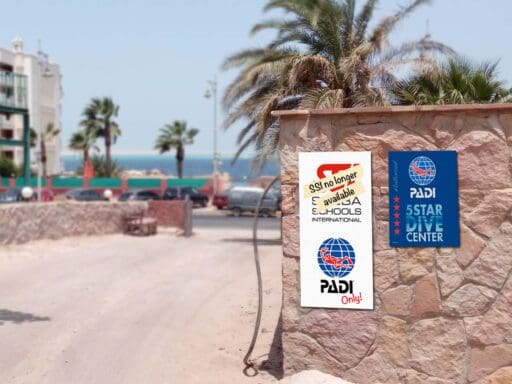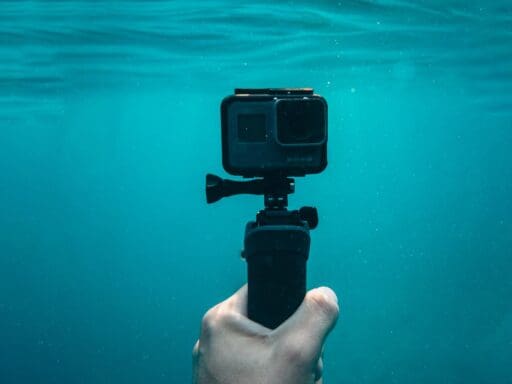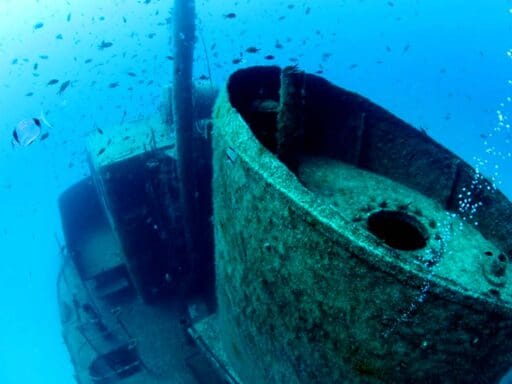In the wake of the recent RTL report on the tragic diving accident off the coast of the Bahamas, where a German diver lost her life during a shark encounter dive, the diving community is left questioning the integrity and accuracy of the media’s portrayal of the incident.
In a previous article we shed light on the confrontational approach taken by RTL towards three dive businesses at the Boot Show in Düsseldorf. The encounter (and accusations made at the time) raised concerns about the nature of their reporting and the lack of factual depth in their coverage.
Upon the release of the final reportage on the RTL website, it became distressingly evident that the information presented was indeed thin on facts and heavily biased towards corroborating the narrative put forth by the reporter.
No real evidence to support claims of negligence
Despite the RTL reporter making repeated claims of negligence during the incident at the Boot Show, the report failed to provide substantial evidence to support such assertions.
One of the key points of contention during the original confrontation, was the reference to an unnamed ‘shark expert’ who allegedly criticized the dive crew’s handling of the sharks. We originally considered whether it was a direct competitor or a disgruntled ex-employee, aiming a low-blow at the businesses.
Upon release of the reportage, however, the shark ‘expert’ was revealed to be esteemed taxonomist, Dr. Simon Weigmann, a Chief Marketing & Communication Officer for a pharmaceutical company specialising in plant based products.
Dr. Weigmann was likely called on for his previous extensive research in taxonomy* and shark distribution. Notably absent from his repertoire, however, are studies specifically addressing tiger sharks or guidelines for human-shark interactions.
This omission implies that, while his insights may be grounded in a broader knowledge of sharks in general, they lack direct empirical support or indeed firsthand experience with real-life tiger shark interactions.
*Taxonomy is a scientific system that classifies organisms into categories based on their biological characteristics.
Furthermore, nowhere in the short interview, does Weigmann actually state that the guides acted negligently. His only words being:
“Feeding always harbors the risk of attracting lots of sharks into one concentration, which can then become very excited. If I am then perhaps part of a large group, possibly seeking contact with the animals, then it is also conceivable that such a shark naturally panics and gets scared… perhaps also snaps… perhaps there’s confusion between bait and diver…”
There is also no direct implication in his statement that the Shark School guides, or those of Master Liveaboards, did anything wrong, nor did her express any concern, as RTL stated.

Image source: Facebook / Wiro Dive
Worryingly absent is any mention of Shark School whatsoever, the actual organizer of the private charter, again raising questions about the selective presentation of information. (and indeed, why?)
According to our source, Shark School Ambassador Andy Dellios was the only representative of the three businesses to actually provide RTL with an interview, going against the wishes of the mourning family. The content of this interview was strangely omitted from the video.
And yet, despite no mention of Shark School, one of their guests and an eyewitness to the tragic incident, Tobias Schmid, appeared repeatedly in the three and a half minute reportage.
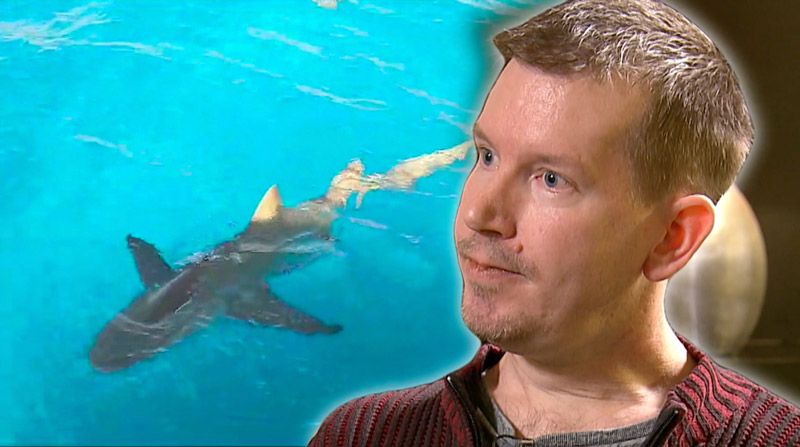
Tobias Schmidt, Shark School guest and eyewitness. Source: RTL.
During the interview, Schmid rather spectacularly states that it was “Undoubtedly, total failure of the crew members”. Unfortunately, we are yet to verify evidence of Schmid’s authority in such matters and what, in his opinion, the crew did wrong.
Schmid, ironically a qualified Rescue Diver, allegedly made no attempt to assist the woman himself, despite his qualifications or apparent knowledge of how a crew members should react during such an incident.
In an article accompanying the video, RTL also claimed that “The crew is said to have abandoned the woman.”
Again, the report seemingly tries to focus on implicating Master Liveaboards alone – once again, there is no mention of the Shark School guides who were also in the water at the time of the incident and jointly responsible for their own guests.
So, does this statement of crew abandonment, therefore, also encompass Shark School staff? The report simply fails to mention all of this.
Contrary to this statement from RTL, we have it on good authority that the dive crew, after safely evacuating guests from the water back to the boat, then remained in the water for some time after the incident. With the knowledge that there were frenzied tiger sharks present, they continued to conduct an underwater search for the missing woman.
Moreover, the report makes a multiple attempts to further tarnish Master Liveaboards’ safety record – one example, by referencing a collision incident from three years ago. Unfortunately, RTL again failed to provide any context whatsoever – the collision, in fact, being caused by a larger freight ship running into the stern of Bahamas Master.
Luckily, this incident is already common knowledge in the liveaboard industry, leaving many bewildered at the implications it attempted to make during the reportage.
So… what can we, as an industry take away from all of this?
We already know, RTL is not known for their quality TV content – and it’s clear that the selective usage of information only serves to sensationalize a tragedy for their own gain. This in turn only serves to undermine the credibility of the report.
As unfortunate as it is, the RTL report on the Shark School incident is a clear example of sensationalist journalism, clearly aimed at gaining clicks and reactions rather than presenting factual and balanced coverage.
We’re sure the dive community will stand united in condemning such journalistic practices and will call for greater integrity and responsibility in media reporting. Especially when dealing with sensitive topics such as tragic accidents.
